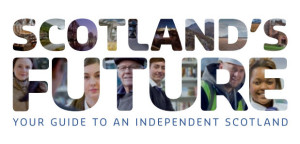The ‘partisan’ CBI
Has the CBI in Scotland shot itself in the foot? For months, it has been posing dozens of awkward questions about the implications of independence. That is exactly what one would have expected any self-respecting business lobbying group to have done. They were intelligent questions that needed answering, the sort that many people and organisations were themselves asking.
However, its decision nationally to register with the Electoral Commission as a supporter of the “No” campaign has meant that it has lost its impartiality. It seems that this was a UK rather than a Scottish decision. It’s perhaps no surprise that it should have done so – its name, the Confederation of BRITISH Industry, rather gives the game away. But the fact that a growing number of members has now resigned suggests that it hasn’t taken at least some of them with it.
It’s understandable that some bodies funded from the public purse in Scotland should have wanted to distance themselves. Scottish Enterprise and Visit Scotland, for instance, were amongst the first to go. In a statement, Scottish Enterprise described CBI Scotland’s move as a “political decision”, leaving it with “no choice but to immediately resign”. VisitScotland also insisted that it was “appropriate to withdraw from the organisation”.
 Others have now followed. Highlands and Islands Enterprise stated that its own position of the issue was impartial which led it to conclude that it was “inappropriate” for the organisation to remain a member of the CBI. And now, Skills Development Scotland has followed suit. At the weekend, three universities (Glasgow, Edinburgh and Aberdeen) and resigned they have now been by Strathclyde and Glasgow Caledonian. This could prove uncomfortable for CBI Scotland’s director, Iain McMillan, who sits on the advisory board of Strathclyde.
Others have now followed. Highlands and Islands Enterprise stated that its own position of the issue was impartial which led it to conclude that it was “inappropriate” for the organisation to remain a member of the CBI. And now, Skills Development Scotland has followed suit. At the weekend, three universities (Glasgow, Edinburgh and Aberdeen) and resigned they have now been by Strathclyde and Glasgow Caledonian. This could prove uncomfortable for CBI Scotland’s director, Iain McMillan, who sits on the advisory board of Strathclyde.
The Law Society of Scotland said it could not retain impartiality as a CBI member. Its chief executive, Lorna Jack, explained that “we do not believe we could credibly retain our impartiality whilst being a member of and actively contributing to another organisation which is formally registered with the Electoral Commission to campaign for a no vote.”
At the time of writing, three private sector companies – STV, Scottish firms Aquamarine Power and the Balhousie Care Group, confirmed they were quitting CBI and others may follow. Nonetheless, a spokesman for the organisation insisted that it remained “confident we have a mandate from the vast majority of our membership on the question of Scottish independence”
The trouble is that there’s no evidence of such a mandate. The organisation has not produced any supporting material to confirm that an anti-independence resolution was ever passed. It’s one reason that those members in the public and private sectors are considering the positions. And this is damaging the credibility of the CBI as a whole.
The decision has surprised even some of those who do not support the CBI’s views in general. Business for Scotland is avowedly a pro-independence body. In a column in its newsletter, it expressed its astonishment, pointing out that the CBI “did NOT have to take a view against independence.
“It could have raised concerns about particular policy issues or perhaps, more constructively, have given a view on how the powers of independence could be used to grow the private sector, without expressing a definitive view on Yes or No. It could have also questioned the No campaign’s ridiculous scare stories in order to represent a balanced view. But instead, officials couldn’t help themselves. They decided to go one step further by making clear they were against independence.”
There is more than one voice speaking for business in Scotland. The Federation of Small Business and the Institute of Directors have made it clear from the start that they would remain impartial, despite being accused by some of sitting on the fence. But what that does allow them to do is ask the awkward questions of both sides. It means they can be trusted to reflect the doubts expressed by their members. It’s something the CBI can no longer do.





















































